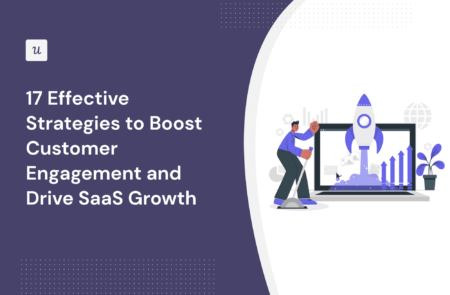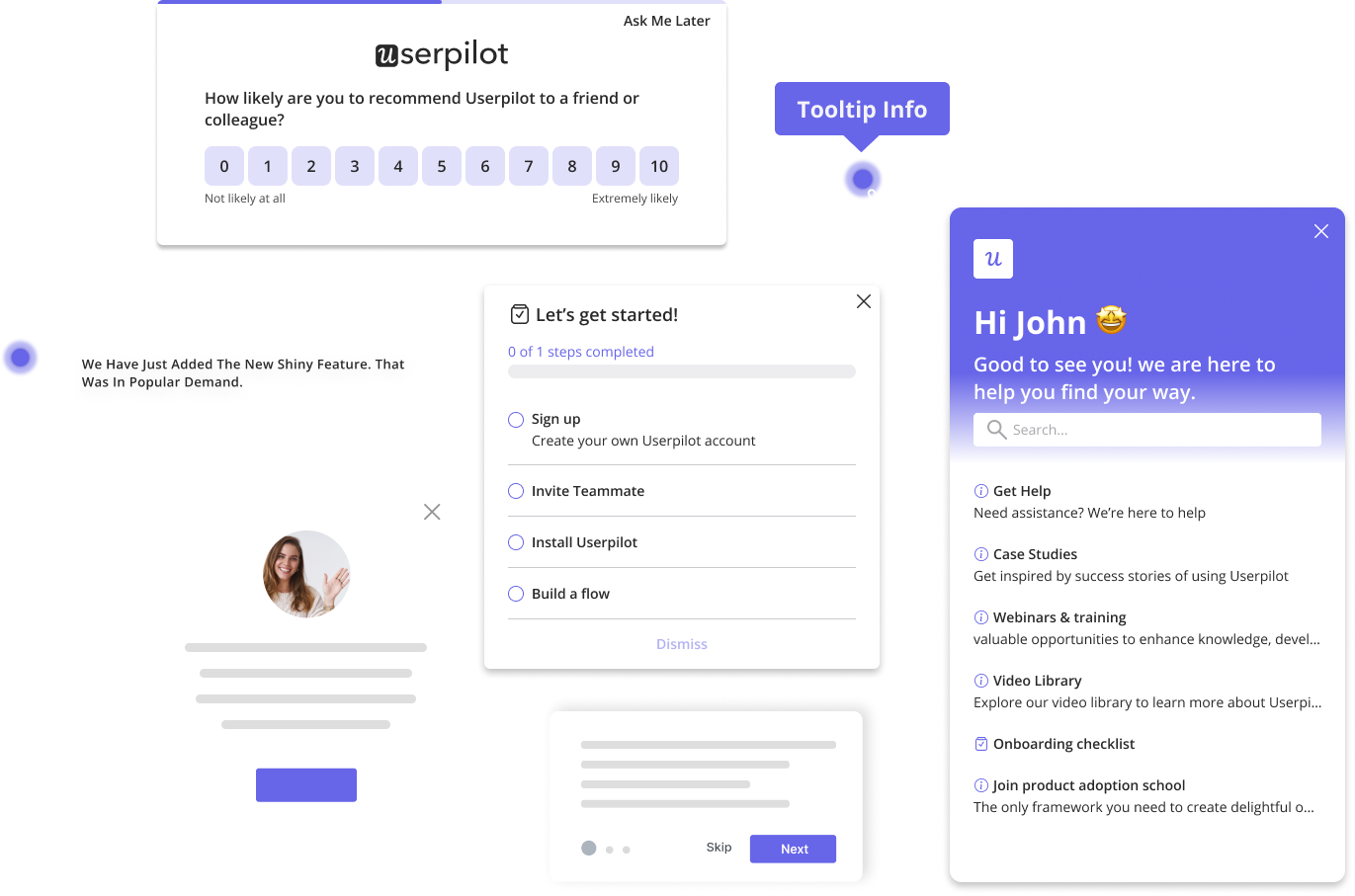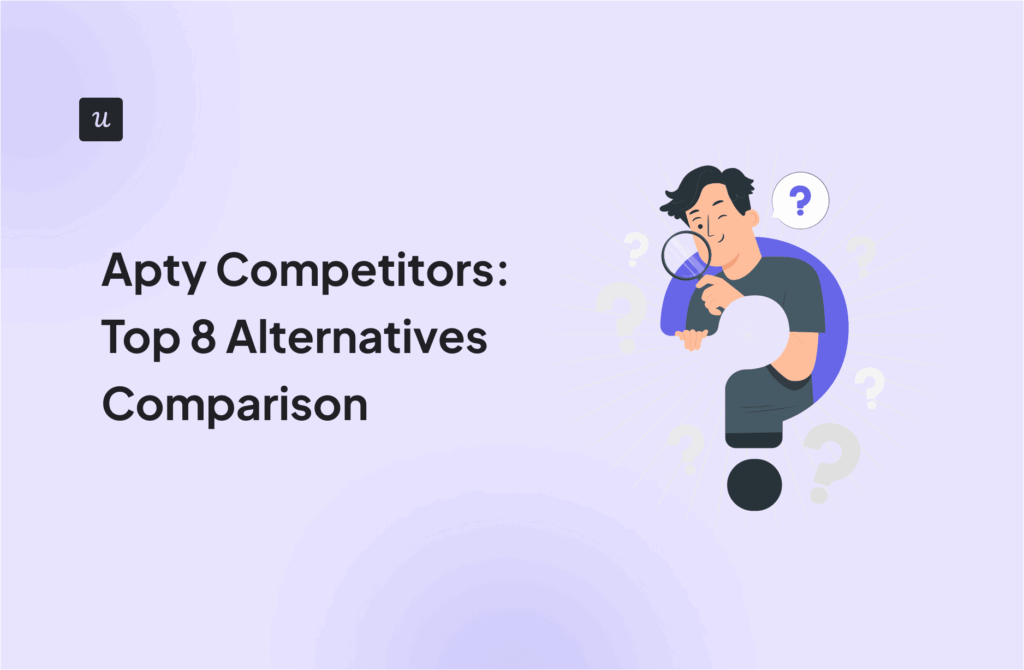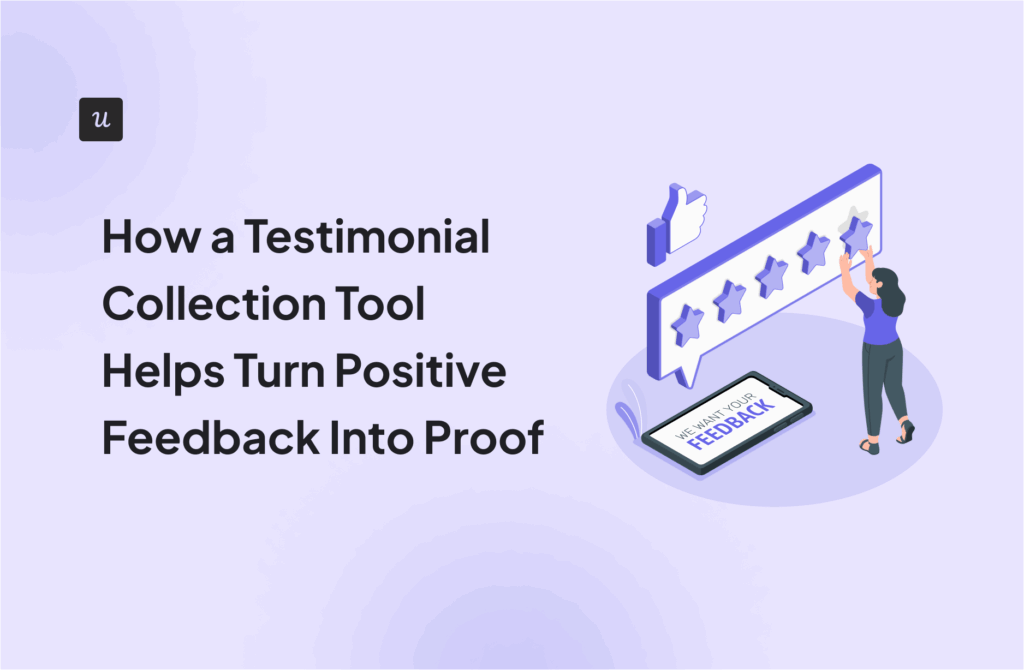
To boost customer engagement for your business, you must place a high value on customer experience.
A strong customer engagement strategy can help you develop long-term relationships with customers and drive product growth.
This article discusses all you need to know about customer engagement, including effective customer engagement strategies for driving growth.
Try Userpilot Now
See Why 1,000+ Teams Choose Userpilot

TL;DR
- Customer engagement is the art of creating a relationship with your customer base to offer exciting experiences and foster brand loyalty.
- The benefits of a successful customer engagement strategy include customer satisfaction, retention, customer loyalty, and increased customer lifetime value.
- Engagement metrics that you can measure success with include activation rate, feature adoption rate, active users, stickiness rate, and product engagement score.
- Send a welcome message to create a good first impression and set expectations for your customers.
- Personalize your customers’ journey to meet their expectations.
- Invite users to a demo call to help them derive optimal value from your product.
- Use onboarding checklists to engage users from the get-go.
- Trigger interactive walkthroughs instead of product tours to help users learn by doing.
- Use in-app video tutorials to create an uninterrupted onboarding process.
- Offer self-service options to remove friction and empower your customers.
- You can help users realize the value of your products and features with tooltips.
- Gamify the customer experience to create engagement loops.
- Reward engaged customers and offer loyalty programs to strengthen relationships.
- Use in-app announcements to eliminate feature blindness to improve new feature engagement.
- Run A/B tests to determine which version of your onboarding flow resonates with your customers.
- Conduct user behavior analysis to identify gaps and drop-offs in your engagement strategy and make improvements.
- Use social media to connect with your target customers.
- Send re-engagement emails to inactive users to bring them back to the app.
- Book a demo today to boost customer engagement and create a loyal customer base for your brand.
What is customer engagement?
Customer engagement is the ongoing process of building relationships with customers across various touchpoints to create positive experiences for them.
A strong customer engagement strategy focuses on identifying prospective customers, determining their needs and preferences, and satisfying those needs at the right time.
Benefits of a successful customer engagement strategy
Engaging customers through their journey can give your company a competitive edge in a world that never runs out of options.
Some of the benefits of a strong customer engagement strategy include:
- Improve customer satisfaction: Engaging customers will likely increase their positive experiences with your brand. It will make them feel seen and heard, increasing customer satisfaction levels.
- Drive customer retention: Customer engagement reduces churn. When your customers repeatedly engage and derive value from your features, they are more likely to stick with your product.
- Nurture customer loyalty: Engaged customers will likely feel connected to the brand, and ultimately become advocates for the brand.
- Increase the customer lifetime value: Customers who feel engaged will likely make additional purchases and upgrade to products and services of higher value.
Customer engagement metrics to measure success with
Tracking customer engagement metrics is critical to the customer success rate of any business.
Let’s examine six engagement metrics that can help you measure success:
- Activation rate: Activation rate measures how many users experience the value of your product by completing specific actions along their customer journey.
- Feature adoption rate: This metric measures how many customers engage with features of your product. A high feature rate indicates users are deriving value while using your product, which minimizes the likelihood of churn.
- Active users: Active user metrics measure the number of users interacting with your product within a specific period. It indicates the level of product usage.
- Stickiness rate: Stickiness is the ratio of daily active users to monthly active users. It measures how many users return to a SaaS app.
- Product engagement score: This metric measures stickiness and provides insight into how many users consistently return to your app.
- Trial to paid conversion rate: This measures the number of trial users who became paying customers after their trial. You can calculate it by dividing the number of paid sign-ups by the number of free trial users.
17 effective customer engagement strategies for driving growth
To develop and incorporate an effective customer engagement strategy, you must understand what customer engagement means to your target customers.
Here are 17 customer engagement strategies you should implement that can help you improve your customers’ experience:
1. Send a welcome message to set customer expectations
A welcome message is a brief and simple form of communication extended to users when they first land on your page.
It allows you to create a good first impression, remind users of the product’s value proposition, and prompt them to engage with your onboarding content.
You can also use a welcome message to collect customer data to offer personalized services to your users.

2. Personalize the customer journey according to user needs
Customers feel appreciated when their journey is customized according to their needs.
Segment customers based on when they signed up, their purchase history, and demographics to trigger onboarding flows tailored to their preferences and jobs to be done.
Personalizing customer experiences helps businesses build stronger relationships with customers. It also increases the likelihood of engagement as the experience is relevant to their specific use case.

3. Invite users to a demo call with a customer service representative
When your product is complex or requires data migration, setup, and implementation, invite users to a face-to-face call to demonstrate how your product or service works.
A demo call allows you to help customers understand any unclear information or any information you may not have provided.

4. Engage users right from the start with onboarding checklists
An onboarding checklist guides users through the essential tasks and actions they need to complete to experience value.
Checklists are successful because they employ the Zeigarnik effect, which suggests that there is a tendency for incomplete tasks to be recalled better than completed ones.
Place the checklist prominently on the users’ dashboard with progress bars reminding them of the tasks they are yet to complete.

5. Replace long product tours with interactive walkthroughs
Product tours can feel patronizing and overwhelming for users, and they do not prompt immediate action.
One way to boost customer engagement is to replace generic product tours with interactive walkthroughs that teach users by doing.
Interactive walkthroughs are more engaging as they provide real-time guidance based on the actions of your users.

6. Use video tutorials to engage customers in the onboarding process
Videos are more engaging than texts and images as they load a lot of information into a smaller package, making it easier for users to follow and replicate.
Embed your customer onboarding videos in-app to make for a smooth and uninterrupted user journey while training users on how to interact with features of your product.

7. Offer self-service support options to elevate customer experience
Friction creates a negative experience that can cause users to abandon a product or even leave poor reviews.
By empowering customers to help themselves while using your product, you will be reducing the friction points and obstacles they experience.
Self-service options that can be included in your resource center can range from chatbots to documentation, and videos.
Whatever self-service options you provide, ensure they are always optimized to align with your product offerings.

8. Use tooltips to drive feature discovery and encourage engagement
Tooltips draw user attention to specific features, provide contextual information, and prompt customer engagement.
You can trigger tooltips when users first land on a specific feature of your product or when they finish interacting with an on-screen element.
This way, you can help users settle nicely into your product and adopt its features.

9. Implement gamification to increase customer engagement
When an activity includes incentives or rewards, users look forward to the outcome and are happy to participate. The competition and feeling of achievement can give users a dopamine boost, with a sense of fulfillment when they receive the reward.
Gamification also gives users a sense of control over the product usage. It gives them a feeling of satisfaction as they realize that the company is ready to do what it takes to offer quality customer experience.
Some forms of gamification that you can implement to boost customer engagement include fun animations, celebratory modals, and badges.

10. Reward engaged users to turn them into loyal customers
Appreciating customers who engage with your products and making them feel valuable to you will encourage them to continue interacting with your brand.
Offer rewards that drive ongoing engagement. For instance, you can offer customers access to exclusive features, mission-based programs, and a points program that allows customers to redeem a certain amount of points for a special discount.

11. Introduce new features to existing customers with in-app announcements
Feature blindness happens when users instinctively focus on the features they are used to and neglect others.
Announcing new features in-app helps you communicate about a product update to existing customers. Introducing customers to new and available features in-app eliminates feature blindness.
Depending on how big the new feature or release is, you can use a modal or slideout to announce new features in-app.

12. Collect customer feedback and act on it to boost engagement
Measure customer sentiment through the customer lifecycle to evaluate their thoughts and feelings about your features, products, and brand.
When customers reveal how satisfied or unsatisfied they feel, collect qualitative feedback to understand the reasons behind the scores.
Act on customer feedback and data to improve the quality of your customer engagement.

13. Improve customer engagement with A/B testing
Run experiments to gather valuable data that can help you determine which version of a page helps you reach your engagement goals faster.
You can use A/B testing to test how customers feel about different design elements, such as buttons, layouts, color schemes, font styles, and even texts.

14. Implement loyalty programs to strengthen customer relationships
Customer loyalty programs keep users invested in a brand which reduces the likelihood of churn. They also encourage customers to return, as it motivates them to earn more rewards.
What’s more, a customer loyalty program can also be used to encourage customers to drive word-of-mouth referrals for you. When they do, reward them for their advocacy, making for a win-win situation for both sides.

15. Analyze user behavior to identify gaps in your engagement strategy
Monitor your conversion funnel to identify drops in engagement and fix them.
UX research can also help you further investigate the reasons for the drop-off. It can help you determine whether the friction and drop-off were caused by poor UX design, slow loading time, or a bad user interface.

16. Use social media to stay connected with your target audience
Being present in the digital spaces that your customers are in is one way to increase engagement.
Create content for different stages of your marketing funnel, starting with the awareness stage.
Your social media content should also drive your target audience back to your SaaS app, and motivate customers to adopt your product.

17. Send re-engagement emails to inactive users
Track product usage patterns and feature adoption rates to identify disengaged customers.
When you do, send them win-back emails to remind them about the benefits of your app, share educational content, and offer help.
Ultimately, you will be able to either re-engage inactive customers or clean up your list to let go of those who don’t want to be there.

How Userpilot can help you boost engagement
Userpilot can help you improve your customer engagement strategy with functionalities like analytics dashboards for metric tracking, code-free feedback collection and analysis, and personalized onboarding experiences.
Userpilot can also help you discover which customer segments are most willing to upgrade based on their engagement patterns.
You can create contextual user experiences using different UI elements to personalize in-app experiences for your customers.

Userpilot analytics lets you track users’ behavior, and make informed decisions to improve your customer engagement strategies.

Register for a Userpilot webinar to find out how you can improve your user engagement and turbo-charge your onboarding.
If you cannot attend the webinar, you will be added to our list of on-demand webinars that can help you improve your customer engagement marketing strategy.

Conclusion
Customer engagement is essential to nurturing healthy customer relationships and offering quality customer experience.
Engaging with your existing customers as well as potential customers across multiple channels can help you build a loyal customer base and increase revenue for your brand.
Book a Userpilot demo to find out how you create an effective engagement strategy and increase customer retention.





![What are Release Notes? Definition, Best Practices & Examples [+ Release Note Template] cover](https://blog-static.userpilot.com/blog/wp-content/uploads/2026/02/what-are-release-notes-definition-best-practices-examples-release-note-template_1b727da8d60969c39acdb09f617eb616_2000-1024x670.png)

